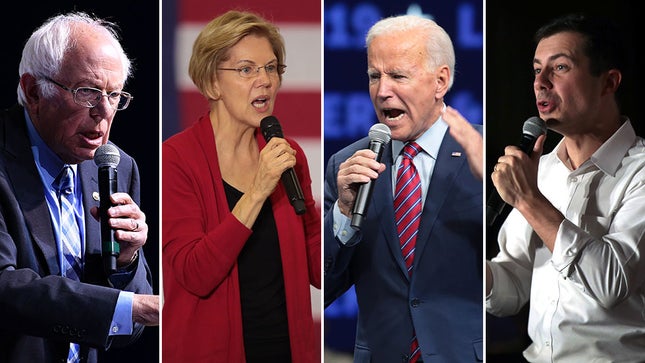CITIZEN’S DIGEST: STATE OF THE ELECTION
Photo courtesy of TheHill
(left to right) Bernie Sanders, Elizabeth Warren, Joe Biden, Pete Buttigieg
The following discusses the positions of the four Democrats leading the 2020 Presidential Race. Additionally, it informs and predicts Virginia’s opinion and degree of proponency for each.
1.The Legacy of Obama: Joe Biden
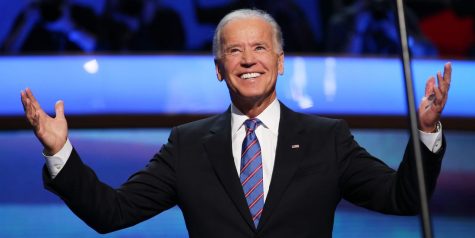
Having gathered experience from his previous nomination attempts in 1988 and 2008 – in addition to his eight year run as Vice President – Joe Biden has developed a campaign prioritizing healthcare and human rights.
“It’s wrong and it is immoral,” Biden declared on June 2nd, 2019, referring to the Trump Administration’s attempts to ban transgender troops in the US Military. “Just like with racial justice and women’s rights, we are seeing pushback against all the progress we’ve made toward equality,” Biden added.
According to Biden, the solution to these problems is Biden’s Equality Act, which upon passing will ensure LGTQ protection. “It will be the first thing I ask to be done,” Biden confirmed.
Biden has also expressed ardent support for expanding the Affordable Care Act. Distinguished from his opponents who instead sought to establish Medicare for all, his plan pursues health insurance for all children, more coverage options for adults, disease prevention and modernizing the nation’s health care system. Additionally, he strives to provide uninsured Americans similar benefits as the ones enjoyed by federal employees, along with people paying for the program on a sliding scale based on income.
Biden’s take on one of the issues of climate change is similarly unique. Considering Warren, Sanders, and Buttigieg – Biden is the only one to support the continued use of nuclear power, in addition, to exhibit the least support for the plan that is extensively endorsed by the rest: The Green New Deal. Biden has released his own $1.7 trillion plan which aims to achieve net zero emissions by 2050. He intends to pay for it through reversing corporate tax cuts, closing tax code loopholes and ending subsidies for oil, gas and coal industries. The plan entails ending subsidies, including coal and fracking, banning oil and gas permits on public lands, and cultivating new industries focused on clean energy.
Among other campaign issues, Biden aims to ban the manufacture and enforce buy back of assault weapons, ban online sales of guns and ammunition, halt US aid to Israel, allow involvement of Super PACs in elections, maintain criminalization of illegal immigrants, and support NAFTA.
Virginia’s Take on Biden
Joe Biden is predicted to receive Virginia’s blessing as the 46th president of the US, according to several sources. Mason-Dixon, a polling and strategy firm that has accurately predicted thousands of elections, claims Joe Biden to hold a 49% to 45% lead over Trump, with 6% remaining undecided. Additionally, a mock election at Virginia Commonwealth University handed Biden the election with Biden winning 49% in comparison to Trump’s 46%. A similar survey at Hampton University found Biden to win the Democratic race with 36% of the votes.
2. The Youthful Centrist: Pete Buttigieg
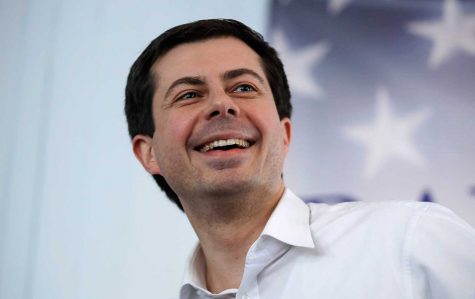
“America is ready for the first openly gay president!” This statement fervently broadcasted on Twitter by Victory Fund, an LGBTG PAC, on February 6, 2020, referred to Peter P. Buttigieg’s recent win in the Iowa Caucus. In addition to being the youngest candidate running, 38-year old Pete Buttigieg is the first openly gay candidate to evolve into a front tier nominee.
Buttigieg’s campaign concentrates on bringing “generational change” to Washington DC. Thus, Buttigieg has designed his campaign and the potential presidency to effectively transcend into a new era of American politics. His signature issues include expanding the Supreme Court, polishing the healthcare system, and abolishing the electoral college.
Buttigieg desires to lower extreme partisanship in the court by establishing 15 Supreme Justices instead of 9 – 5 Democratic, 5 Republican, and 5 chosen by the previous 10 – asserting that this will enable justices to think for themselves without political influence.
On the other hand, regarding healthcare, Buttigieg similarly adopts a centrist outlook. Although he shares views with Warren and Sanders on emphasizing Medicare, Buttigieg also pleases those who believe Medicare-for-all to be too extreme. His plan, Medicare for all who want it, aims to provide high quality, government paid, public healthcare for all who want it, while also preserving private plans and insurance companies for those who do not.
In addition to creating more seats in the court, Buttigieg also aims to eradicate the seats of the electoral college, a desire which he shares with Warren, Biden, and Sanders.
Among other topics, Buttigieg advocates increased political representation for Washington DC and Puerto Rico, ending gerrymandering, eliminating incarnation as a response to simple drug possession, decriminalizing illegal immigration, repudiating NAFTA, and executing a $2 trillion plan to achieve net-zero carbon emissions by 2050.
Virginia’s Take on Buttigieg
According to Mason-Dixon, 45% of Virginia’s voters are predicted to vote for Buttigieg when it comes to Buttigieg vs. Trump. The rest consists of 47% Trump-voters and 8% undecided. According to the survey at Hampton University, 11% of students voted for Buttigieg, making him the democratic fourth choice following Biden, Sanders, and Warren. In fact, 16% of Virginians surveyed by Mason-Dixon claimed to not even recognize the name “Pete Buttigieg,” and 30% claimed to not favor him as a president.
3.The Multi-Faceted Reformist: Elizabeth Warren
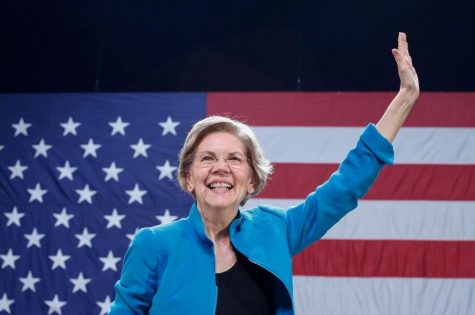
Adorned with an extensive list of reforms and plans for the US, Massachusetts senator Elizabeth Warren aims to relocate power from the hands of the rich to the hands of the working class. Her pursuits include creating a wealth tax, canceling student loan debt, endorsing the Green New Deal, and establishing “Medicare for all.”
Her pervasive ambitions raise the question of funding. In fact, Warren has disclosed a finance plan that entails 30 trillion dollars in the course of the next decade, most of which will be garnered by implementing Warren’s new tax system. This plan includes a 2 percent annual tax on households with a net worth between $50 million and $1 billion, and a 6 percent tax on net worths above $1 billion. According to her, the revenue generated from this taxation will not only pay for her desires for a cleaner environment but also help pay for her expansion of Medicare.
“Medicare for all” is one of her main, and relatively controversial, goals for the future of the US. Similar to Sanders, Warren believes a single-payer healthcare system and the elimination of private plans will ensure high quality and just healthcare for all citizens. Another aspect that severely sets Warren aside from her competition includes her plan to remedy the climate issue. Her $2 trillion Green New Deal adoption will achieve net-zero carbon emissions by 2030, the fastest plan offered by any candidate.
Moreover, her co-sponsorship of Cory Booker’s Marijuana Justice Act provides that she will legalize Marijuana federally upon nomination. She also avidly supports the decriminalization of unauthorized border-crossings, exempting all illegal entry from any type of consequence. Her support for minorities fosters another major campaign stature: slavery reparations. On a statement to Reuters in February 2019, Warren explained that she deems the federal government response to distribute monetary reparations to all African-American families who were once affected by slavery.
Among other electoral issues, Warren shares her competitors’ views of abolishing the electoral college, banning assault weapons, and demanding universal background checks for guns.
Virginia’s Take on Warren
With only 36% of Virginians favoring Warren, the Mason-Dixon report revealed that the majority of Virginians oppose the idea of Warren as the next President – specifically, 51%. Additionally, the report informed that when compared to Trump, merely 44% Virginians are predicted to vote for Warren, while 48% are expected to vote for Trump, and 8% to remain neutral. The Hampton University survey additionally reaffirmed these trends, placing Warren as the third choice for the Democratic win in Virginia with 13% of voters.
4. The Radical Optimist: Bernie Sanders
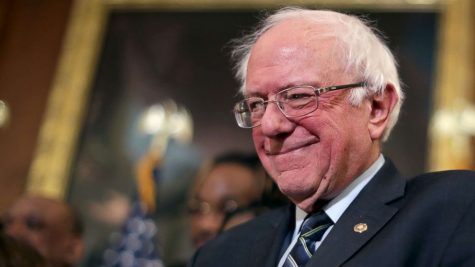
Although one of the front-runners of the current Democratic race, Sanders has actually chosen to not join the party he hopes to eventually lead. Instead, he deems himself a democratic socialist. In fact, despite receiving never-ending criticism from both the left and right, this Vermont senator strenuously continues to patron his self-proclaimed “radical” visions for the future of the US.
His main pursuits include reforming the healthcare system, hoping to direct it in a path analogous to that of Canada’s. Similar to Warren, he aims for a single-payer healthcare system that will ensure coverage to all Americans, as well as the termination of all private healthcare providers. In true socialist fashion, his plan encompasses financing through placing taxes on “extreme wealth.” However, the plan has received scrutiny from economists, who claim the plan fails to expound upon key details such as the definition of “extreme wealth.”
Regarding climate, Bernie Sanders has unveiled his own plan which mirrors several trends of the renowned “Green New Deal.” In fact, Sanders’ climate plan is also known as the “Green New Deal,” although it presents key differences from its counterpart. His $16 trillion projects is expected to achieve net-zero carbon emissions by 2050, generate 20 million new jobs, transform the American energy industry into 100% renewable, and conserve public lands. Emulating his competitors, Sanders claims funding to be generated through taxing the rich.
On a different note, unlike his competition, Sanders has zealously opposed the idea of open borders, claiming it would depress wages for American workers. Although, he avidly supports the cultivation of a healthy and opportunity-saturated environment for unproblematic undocumented immigrants who have lived in the US for over 5 years. Sanders aims to provide them with the same free healthcare and college that will be provided to the general public. In addition, he will also provide these populations with an effective road to earning citizenship.
In relation to other electoral issues, Sanders envisions to increase the minimum wage to $15 per hour, decriminalize Marijuana, eliminate all current medical debt, and establish free college.
Virginia’s Take on Sanders
According to the Mason-Dixon report, when it comes to Bernie going against Trump, Trump is expected to win with 51% of the votes, while Bernie receives 45% and 4% remain neutral. Additionally, 35% of Virginia’s voters recognize Sanders as a favorable president, while the majority 52% deem him as unpromising. According to the Hampton University survey, Sanders placed second in the Democratic election, receiving 17% of the students’ votes.

